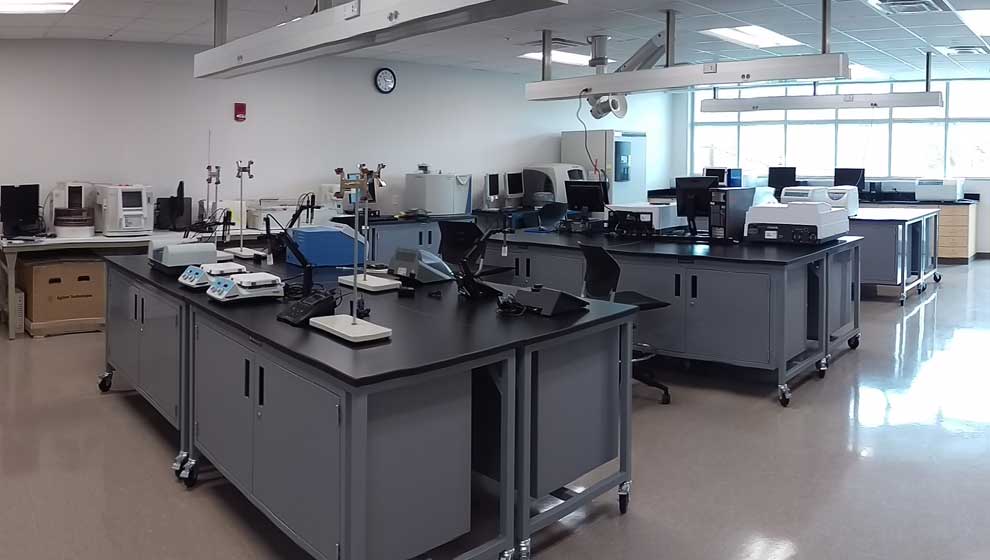The Emergent Technologies Institute (ETI) at Florida Gulf Coast University opened in 2016 to support interdisciplinary research, graduate education, and technology development.
The ETI is a 26,000 square foot research and development complex designed to support new educational initiatives, enhance regional workforce and economic development, and foster collaboration involving higher education, government and industry. The ETI also is the first project in the Fort Myers ITEC, a 240-acre development planned as a magnet for technology and research companies.
About Our Facilities
-
Facilities
Toggle More Info -
Programs
Toggle More Info -
Currently Supported Research
Toggle More Info
Other Information About the Emergent Technologies Institute
Emergent Technologies Institute Cost Resources
Equipment and Training at Emergent Technologies Institute
Safety at the Emergent Technologies Institute
Location and Hours
8am-5pm Monday-Friday
16301 Innovation Ln, Fort Myers, FL 33913


